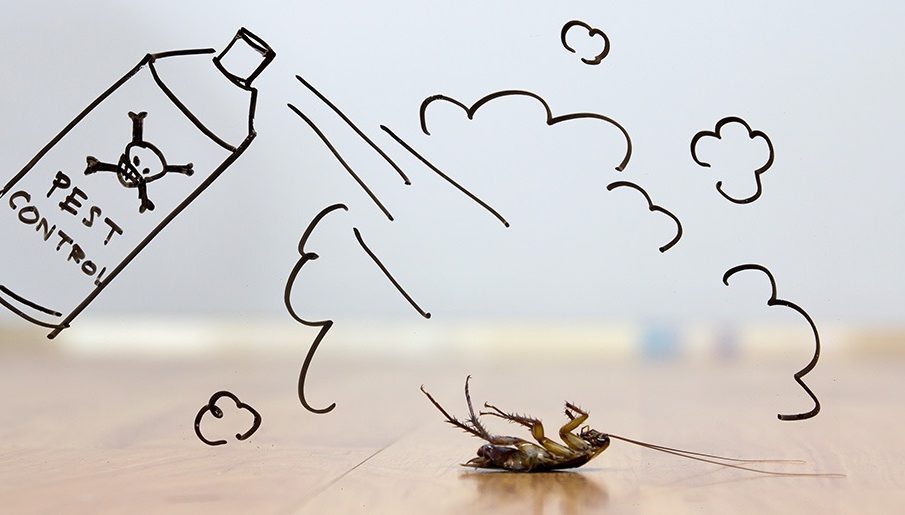Common Myths About Pests That Could Be Costing You Money

Pests are sneaky — and so are the myths that surround them. Over the years, pest control has picked up its fair share of misinformation, old wives’ tales, and half-truths. While some of these might sound convincing, believing them could end up costing you more in the long run — in damage, frustration, and missed opportunities to stop a problem before it grows.
Let’s break down some of the most common pest control myths and get to the truth behind them.
🐭 Myth #1: If You Don’t See Pests, You Don’t Have a Problem
This one is a biggie — and one of the most dangerous.
The truth: Most pests are experts at hiding. Termites can chew away at your home’s structure for months or even years without being seen. Mice might only come out at night. Cockroaches can thrive behind your walls or under appliances with little evidence — until it’s too late.
Why it costs you: Waiting to take action until you actually see pests gives them plenty of time to multiply and cause damage. By the time you notice them, you’re probably already dealing with an infestation.
🪳 Myth #2: Clean Homes Don’t Get Pests
A tidy house is a good thing — but it doesn’t make you immune.
The truth: While mess and clutter can attract pests (especially rodents, ants, and cockroaches), even the cleanest homes can become targets. Pests are often drawn by things you can’t see — like hidden moisture, gaps in your foundation, or just being in the wrong place at the wrong time.
Why it costs you: Believing your home is “too clean” for pests may lead you to ignore early warning signs or skip regular inspections, which can make the problem worse later.
🧄 Myth #3: Natural Remedies Like Garlic or Essential Oils Work Just as Well as Chemicals
It’s a nice thought — but not exactly true.
The truth: Some natural substances may repel certain pests temporarily (like peppermint oil for mice), but they rarely eliminate infestations. Natural solutions can be part of a bigger strategy, but on their own, they usually don’t get the job done — especially for tough pests like termites or bed bugs.
Why it costs you: Relying on home remedies can give you a false sense of security, letting infestations grow under the radar while you’re busy spraying eucalyptus oil.
🐜 Myth #4: You Only Need Pest Control When You Have an Infestation
This one’s like waiting until your car breaks down before getting an oil change.
The truth: Regular preventative pest control is the best way to keep your home pest-free. Professional services include inspections, barrier treatments, and proactive solutions that stop pests before they ever become a problem.
Why it costs you: Skipping preventative treatments can lead to larger infestations that are harder (and more expensive) to fix. Prevention is almost always cheaper than emergency pest control.
🕷️ Myth #5: Spiders Are Always Dangerous
Nobody wants to find a spider in their home — but most of them are harmless.
The truth: Of the thousands of spider species, only a handful are venomous or pose any risk to humans (like black widows or brown recluses). In fact, many spiders actually help by eating other pests like flies and mosquitoes.
Why it costs you: Overreacting to harmless spiders can lead to unnecessary extermination efforts — and may disrupt the balance of beneficial insects in your home.
🛠️ Myth #6: You Can Handle Every Pest Problem Yourself
We get it — DIY can feel empowering and budget-friendly.
The truth: While you can handle minor pest issues on your own, larger infestations, structural damage, or certain pests (like termites, bed bugs, or rodents) almost always require professional help. Pest control specialists are trained to assess risk, treat effectively, and prevent future problems.
Why it costs you: Delaying professional treatment often leads to the problem growing worse — and more expensive to fix down the line.
💡 Final Thoughts: Know the Truth, Save Your Home
Believing pest control myths can cost you time, money, and peace of mind. Whether it’s ignoring a hidden infestation or relying on ineffective treatments, misinformation can make an already frustrating problem even worse.
The best thing you can do? Stay informed, trust the professionals, and don’t wait until pests are running the place before you act. We recommend kansas city pest control.










